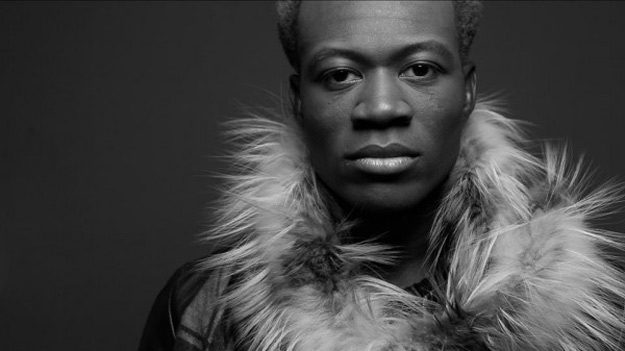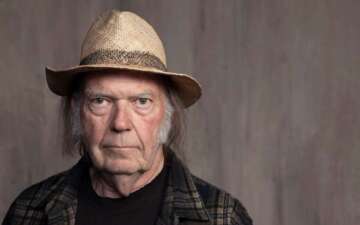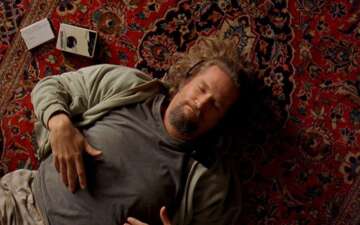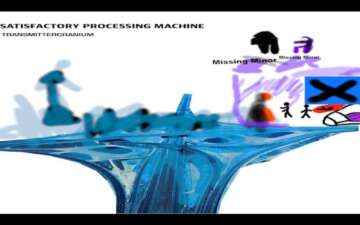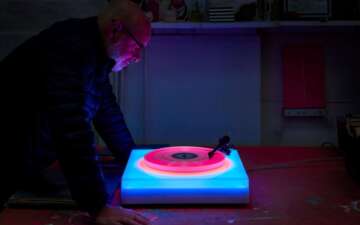
Adegbenga Adejumo, conosciuto ai più come Benga, ci è rimasto sotto con la droga.
L’anno scorso gli son stati diagnosticati un disturbo bi-polare e la schizofrenia, il primo a causa del consumo di droghe e la seconda per essere stato troppo in tour (…).
In un’intervista al Guardian, ha raccontato di quando ha iniziato ad accorgersi di avere dei problemi:
“It started in winter 2013, that’s when I began to lose control of my body. Around Christmas, I got all of my jewellery together and I started giving it to people as they were shopping. One of my favourite watches was a rose gold Rolex, and I had that in my inside pocket. I remember somebody talking about ‘time’ and I just reached into my pocket and gave it to them. During that period, I cleared out my entire house, not knowing what I was doing. I lost everything within the space of about four months.”
Poi, sempre nel corso dell’intervista, punta il dito all’industria musicale con un pippone filosofico:
“This industry is all about perception: a lot of people wouldn’t want anybody to think they’re weak, or that they can’t do what they do, or that they’re not cool,” says Benga. “Nobody wants to come clean, let alone an artist.”
La sua salute mentale è stata compromessa dall’eccessivo consumo di droghe fin da giovane, e le pressioni che ha dovuto affrontare una volta iniziata la carriera musicale hanno contribuito a peggiorare la situazione:
“I’d been taking them since I was 17 years old, but it really started to affect me when I was about 22, 23. The majority was ecstasy but I also discovered ketamine when I was 25. I started to get anxiety and paranoia, but it’s always been in my nature to carry on and think that everything is going to go away.” A hectic touring schedule, coupled with the pressure to be the life and soul of every party, caused yet more anxiety. “I found myself getting high because of it – I’d be in a situation and I’d be anxious, so I’d think: ‘Let’s get out of it.’ People would say to me: ‘You need to slow down,’ but I didn’t recognise that anything was wrong.”
Solo dopo essere stato arrestato l’anno scorso, il ventisettenne produttore di Croydon ha capito che aveva bisogno d’aiuto, ed è stato così sottoposto a un TSO:
“I don’t want to scare people but it was an extreme situation and I’d become aggressive. I was seen by a doctor and he decided that I should stay in the intensive unit. It took a while for reality to settle in but the more I spoke about my breakdown, the more I realised that it was common. There’s a lot of stigma around sectioning, as if it’s something you couldn’t possibly do to another person. A lot of people are scared. But it needs to be done.”
Ora combatte la sua malattia con l’aiuto di antipsicotici ogni volta che non si sente in grado di controllare i propri pensieri, ed è tornato da poco ad esibirsi dal vivo dopo più di 1 anno il mese scorso al Bestival:
“I know I’m going to battle with this my whole life. I know I can’t touch drugs and I can’t be stupid. There are points now where I think to myself that I’m the happiest I’ve ever been. Before having this illness I didn’t have that much focus: my ego was getting the better of me and I wasn’t sure of how I felt. I was a robot. Now this illness has kind of given me focus: it’s made me realise what’s most important to me and to get my priorities straight.”
Da parte nostra non possiamo che fargli i migliori auguri, sperando che possa convivere se non anche sconfiggere questa malattia, augurandoci che averne parlato pubblicamente possa essere d’aiuto a tanti giovani che non sanno divertirsi responsabilmente.
https://www.youtube.com/watch?v=FMYcA_09zew

